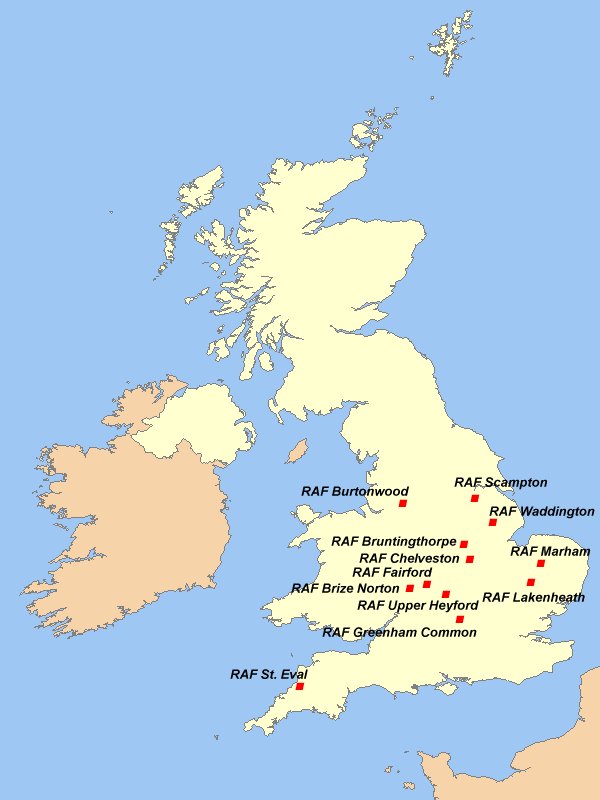The process of attaining residency in the United Kingdom can be both complex and confusing. With a myriad of requirements, eligibility criteria, and various visa categories to choose from, it is crucial to have a comprehensive understanding of the system before undertaking this endeavor. This article aims to serve as a guide to UK residency, providing essential information that will help individuals navigate through this maze of regulations and make informed decisions. Whether you are seeking to move to the UK for work, study, or to settle permanently, this article will outline the key aspects of the residency process, shedding light on the necessary steps and documentation involved. By acquainting yourself with this invaluable information, you will be better prepared to embark on your journey towards establishing residency in the United Kingdom.
Eligibility Criteria for UK Residency
In order to obtain residency in the United Kingdom, there are certain eligibility criteria that need to be met. These criteria have been put in place to ensure fairness and efficiency in the immigration process. Whether you are applying for work, study, or to join your family in the UK, understanding these requirements is crucial.
1. Visa Category
The first step towards residency is determining the appropriate visa category for your situation. The UK offers various visa options such as Tier 2 for skilled workers, Tier 4 for students, and Tier 1 for exceptional talents. Each visa category has specific requirements and it is important to choose the one that aligns with your purpose of stay.
2. Financial Stability
An important criterion for residency in the UK is demonstrating financial stability. You must be able to prove that you can support yourself and any dependents during your stay. This includes having sufficient funds to cover living expenses, accommodation, and potentially healthcare costs. Evidence of bank statements, employment contracts, or sponsorship letters may be required.
3. English Language Proficiency
Since English is the official language in the UK, it is crucial to demonstrate your proficiency in the language. This requirement applies to most visa categories. You may need to provide evidence of an English language test, commonly the International English Language Testing System (IELTS) or the Test of English for International Communication (TOEIC).
4. Character and Health
Your character and health are also taken into consideration when applying for residency in the UK. This involves providing a clean criminal record check from your home country and undergoing a medical examination to ensure you do not have any communicable diseases that may pose a public health risk.
Meeting the is an important step towards starting a new chapter in your life. It is vital to thoroughly research the specific requirements related to your visa category and seek professional advice if needed. By understanding and fulfilling these criteria, you can increase your chances of a successful application and enjoy all the benefits that living in the UK has to offer.

Documents and Paperwork Required for UK Residency Application
When applying for UK residency, it is crucial to gather all the necessary documents and paperwork to ensure a smooth and efficient process. The following comprehensive list outlines the essential items you will need to provide in support of your application:
- Valid Passport: Make sure your passport is not expired and has at least six months of validity remaining.
- Proof of Residence: Submit documents that prove your current address in the UK, such as utility bills, tenancy agreements, or a letter from your employer confirming your employment.
- Proof of Financial Means: Demonstrate that you have the financial capacity to support yourself and any dependents during your residency in the UK. This can be done through bank statements, pay slips, or a letter from your financial institution.
- Character References: Obtain two character references from reliable sources who can vouch for your good character and conduct. These may include employers, teachers, or community leaders.
- Biometric Residence Permit (BRP): If you have already been in the UK on a visa, you will need to provide your BRP as proof of your legal stay and immigration status.
- Police Clearance Certificate: Some applicants may be required to obtain a police clearance certificate from their home country or any country they have lived in for more than twelve months. This certificate assures the UK authorities that you have no criminal record.
It is essential to note that these are only the core documents required for a UK residency application. Depending on your specific circumstances, additional documents might be necessary, such as marriage certificates, birth certificates for dependents, or proof of English language proficiency. It is advisable to review the specific requirements of the visa category you are applying under to ensure complete compliance.
Remember to carefully collate all the required documents and complete any application forms accurately and truthfully. This will greatly increase your chances of a successful UK residency application and pave the way for a smooth transition into your new life in the United Kingdom.

Understanding the UK Residency Application Process
Applying for residency in the United Kingdom can be an intricate process, but with the right information and guidance, it becomes much more manageable. This section aims to provide a comprehensive overview of the UK residency application process, outlining the essential steps and requirements to ensure a smooth and successful application.
Step 1: Determine your eligibility
- Check whether you qualify for the appropriate residency category, such as family, work, study, or asylum.
- Review the specific eligibility criteria and ensure you meet the necessary qualifications, including financial and English language requirements.
Step 2: Gather necessary documentation
- Prepare all the required documents, such as your valid passport, proof of address, employment contract, academic transcripts, or marriage certificate.
- Ensure that all documents are up-to-date, translated (if necessary), and authenticated as per the guidelines of the UK Home Office.
Step 3: Complete the application form
- Access the official UK residency application form either online or by obtaining a physical copy.
- Thoroughly fill out the application form, ensuring accurate and detailed information.
- Consider seeking professional assistance or legal advice if you feel uncertain about any aspect of the form.
Step 4: Submit your application
- Submit your completed application form, along with all supporting documentation, either by mail or online through the designated application portal.
- Pay the required application fee as indicated by the UK Home Office.
- Make sure to retain copies of all submitted materials for your records.
Following these steps will help you navigate the UK residency application process successfully. Remember to always stay informed about the latest updates and changes in immigration policies to ensure a smooth experience. Good luck with your application!

Tips for a Successful UK Residency Application
When it comes to applying for UK residency, there are a few key factors to consider that can greatly increase your chances of a successful outcome. Here are some valuable tips to help you navigate the process and make your application stand out.
1. Thoroughly Research the Requirements
Before diving into the application process, take the time to thoroughly research the requirements for UK residency. Familiarize yourself with the specific visa category you are applying for and the documents you will need to submit. Make sure you meet all the eligibility criteria, including financial requirements and English language proficiency. Understanding the guidelines in advance will help you prepare a strong application.
2. Organize Your Supporting Documents
One of the crucial aspects of a successful UK residency application is organizing and submitting the correct supporting documents. Ensure that all your documents, such as educational certificates, employment records, and financial statements, are complete, accurate, and up-to-date. Arrange them in a logical order, making it easier for the immigration officer to review your application. Remember, a well-structured and comprehensive set of supporting documents can greatly enhance your chances of success.
3. Demonstrate Strong Ties to the UK
Showcasing your strong ties to the UK can significantly strengthen your residency application. This includes providing evidence of your ties to the country, such as job offers or letters from UK-based institutions expressing support for your application. Additionally, highlighting any contributions you have made to the UK society or economy can also boost your chances of success. Remember to clearly articulate why you have chosen the UK as your place of residency and emphasize your commitment to integrating into the local community.
Following these tips can help make your UK residency application a success. Remember to approach the process with thoroughness and attention to detail. Good luck on your journey to becoming a UK resident!

Important Considerations for Maintaining UK Residency
Proof of Residence
Maintaining legal residency in the UK requires proper documentation. It is crucial to keep your proof of residence up to date at all times. This can include utility bills, bank statements, tenancy agreements, or council tax bills, among others. Make sure to keep copies of these documents in a safe place and update them regularly as needed. In case of any future inquiries or audits, having a well-maintained proof of residence will be invaluable in demonstrating your legal status.
Continuous Presence
To maintain your UK residency, it is important to ensure continuous presence in the country. This means not being absent from the UK for extended periods of time, as it could jeopardize your residency status. While there is no specific duration prescribed, it is generally recommended to limit your absences to less than 180 days in any rolling 12-month period. Providing evidence of your regular presence, such as flight tickets, hotel receipts, or work contracts, can help support your case in case of scrutiny.
Employment and Taxes
Maintaining gainful employment in the UK is a significant factor in ensuring your residency status. It is essential to comply with all employment regulations and related tax obligations. Paying income tax, national insurance contributions, and recording these accurately is crucial. Keep track of your employment records, including employment contracts, payslips, and P60s. Regularly review your tax obligations with a tax advisor to ensure you remain compliant with UK tax laws.
Access to Public Services
One aspect of maintaining UK residency is ensuring continued access to public services. Ensure that you are registered with a local doctor (GP) and have an up-to-date National Insurance number. These factors can often be essential in proving your eligibility for certain benefits or services. Additionally, familiarize yourself with any changes in the law that may affect your eligibility for public services and take appropriate action to update your details or enroll where necessary. Be proactive in staying informed about changes that may impact your residency status.
Remember, these considerations are general in nature and each individual’s circumstances may vary. It is always advisable to seek professional advice from immigration experts or solicitors specialized in UK immigration laws. Staying aware and proactive in fulfilling the requirements for maintaining UK residency will help ensure the stability and legality of your status in the country.
Recommendations for Accessing Essential Services as a UK Resident
In order to ensure a smooth and hassle-free experience while accessing essential services as a UK resident, it is important to be aware of certain recommendations. These recommendations can help you navigate through various processes, save time, and obtain the services you need efficiently. Here are some tips to keep in mind:
1. Research and plan ahead: Before visiting any essential service provider, it is advisable to research and gather all the necessary information. This can include their opening hours, required documentation, and any specific procedures involved. By planning ahead and being well-prepared, you can avoid unnecessary delays and ensure a successful visit.
2. Utilize online services: In today’s digital age, many essential services offer convenient online options. Whether it is scheduling appointments, applying for permits or benefits, or making payments, utilizing these online services can save you time and effort. Visit the official websites of the relevant service providers to explore the available online options.
3. Keep important documents in order: When accessing essential services, it is essential to keep your important documents well-organized. This includes identification documents, proof of residency, and any relevant forms. Keeping them in a secure and easily accessible place will simplify the verification process and ensure a smooth transaction.
4. Seek guidance when needed: If you ever encounter difficulties or have questions regarding accessing essential services, don’t hesitate to seek guidance from reliable sources. This can be done by reaching out to customer service helplines, visiting local community centers, or seeking advice from government agencies. Remember, there are resources available to assist you in navigating the system.
By following these recommendations, you can navigate the process of accessing essential services as a UK resident with ease. Remember to always stay informed, be prepared, and seek assistance when necessary. Accessing essential services should be a straightforward and stress-free experience for all UK residents.
Key Takeaways
In conclusion, this guide has aimed to provide essential information on UK residency, equipping readers with a comprehensive understanding of the requirements and processes involved. Whether you are an EU citizen seeking to navigate the new post-Brexit landscape or a non-EU national looking to establish residency in the UK, we have covered key topics such as immigration rules, visas, work permits, and the settlement scheme. By remaining up to date with the latest changes and seeking professional advice when needed, you can ensure a smooth and successful journey towards UK residency. While the process may appear daunting, staying informed and being prepared will undoubtedly pave the way for a fulfilling life in the United Kingdom.





